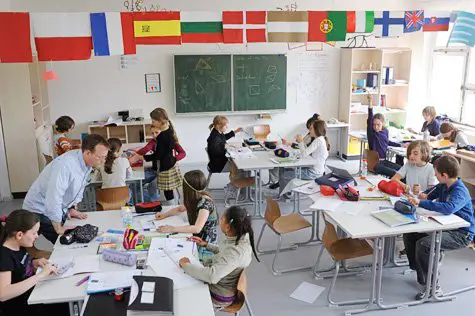Table of Contents
English Teaching and Globalization
English and globalization are inseparable topics for teachers of English. As a global lingua franca, English plays a vital role in international trade, media, communication, the movement of people, and many other areas. It is not just a system of grammar, words, and pronunciations; it is also a tool that integrates countries politically and economically into the global community.
However, a critical question arises: What type of English should our students learn? There are three commonly discussed alternatives:
- Centered varieties of English, such as American and British English;
- English as an international language or lingua franca;
- Regional and local Englishes, such as Singapore English or Nigerian English.
Let’s explore more ideas about English and globalization!
You Say “Englishes”?

The idea of “Englishes” has gained traction as English evolves to meet the needs of diverse global users. As Scott Thornbury highlights on his blog, different Englishes have emerged, reflecting cultural influences and local needs.
Carla Power, writing for Newsweek, emphasizes this point:
“Non-native English-speakers” worldwide now outnumber native ones 3 to 1. In Asia alone, the number of English users has topped 350 million – roughly the combined populations of the United States, the UK, and Canada. There are more Chinese children studying English—about 100 million—than there are Britons (that’s nearly twice as many).
These statistics illustrate the rise of “new Englishes,” shaped by their users’ unique linguistic and cultural contexts. Given this reality, what will become of the “standard” English used in the United States, the UK, and other traditionally English-speaking countries? Will these varieties of English become the minority?
The Role of English in Globalization
What is the impact of English and globalization on communication, trade, and education?

English serves as a bridge across cultures, making it essential in several key areas:
- Global Trade: English is the default language for international business contracts and negotiations.
- Media and Technology: English’s continued relevance is ensured by its dominance in software development, global journalism, and digital platforms.
- Education and Migration: English is often a gateway to higher education and professional opportunities, influencing migration patterns worldwide.
What Type of English Should We Teach?

Educators must consider their students ‘ needs and goals when deciding on the type of English to teach. Here is an analysis of the three main types:
- Centered Varieties (e.g., US and British English):
- Advantages: Widely recognized and associated with prestige and authority. Resources, such as textbooks and media, are readily available.
- Challenges: These varieties can overshadow local languages and cultures, contributing to linguistic imperialism.
- English as a Lingua Franca:
- Advantages: A practical, neutral tool for global communication that focuses on mutual intelligibility rather than native-speaker norms.
- Challenges: Maintaining standards and consistency can be difficult.
- Regional and Local Englishes:
- Advantages: Reflect cultural identity and empower local speakers.
- Challenges: These varieties may lack recognition or prestige on the global stage.
Challenges of English in Globalization
While English’s global dominance offers opportunities, it also presents challenges:
- Linguistic Imperialism: The widespread use of English often threatens indigenous languages and cultures.
- Inequality: Access to quality English education is uneven, deepening socioeconomic divides.
- Communication Barriers: Variations among Englishes can lead to misunderstandings in international contexts.
The Future of Standard English

As non-native speakers now outnumber native speakers, the influence of “new Englishes” continues to grow. These varieties will likely shape the future of English, challenging traditional norms and reshaping what “standard English” means.
Implications for Teaching Practices
Educators must adapt to this evolving linguistic landscape by:
- Teaching Global English: Focus on communication and mutual intelligibility rather than strict adherence to native-speaker norms.
- Incorporating Diversity: Highlight regional varieties to celebrate cultural richness.
- Promoting Cultural Awareness: Help students navigate the complexities of global communication.
Conclusion
English is not just a language; it is a living, evolving tool that reflects the realities of globalization. As educators, our greatest challenge and opportunity is to embrace this diversity while equipping students to succeed in a globalized world.
What do you think? How do you approach teaching English in the age of globalization?


